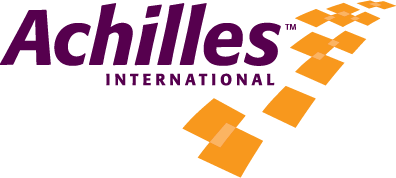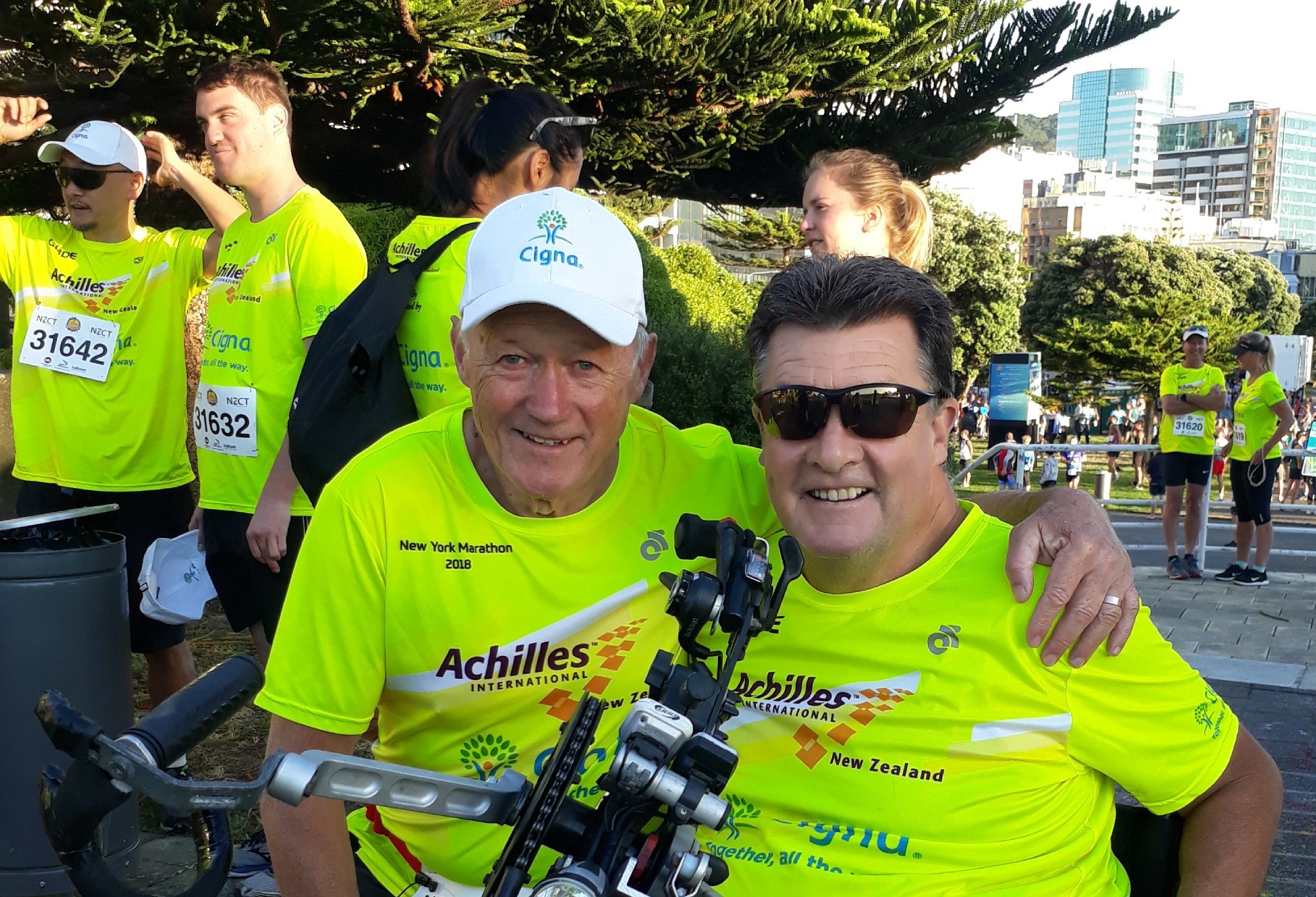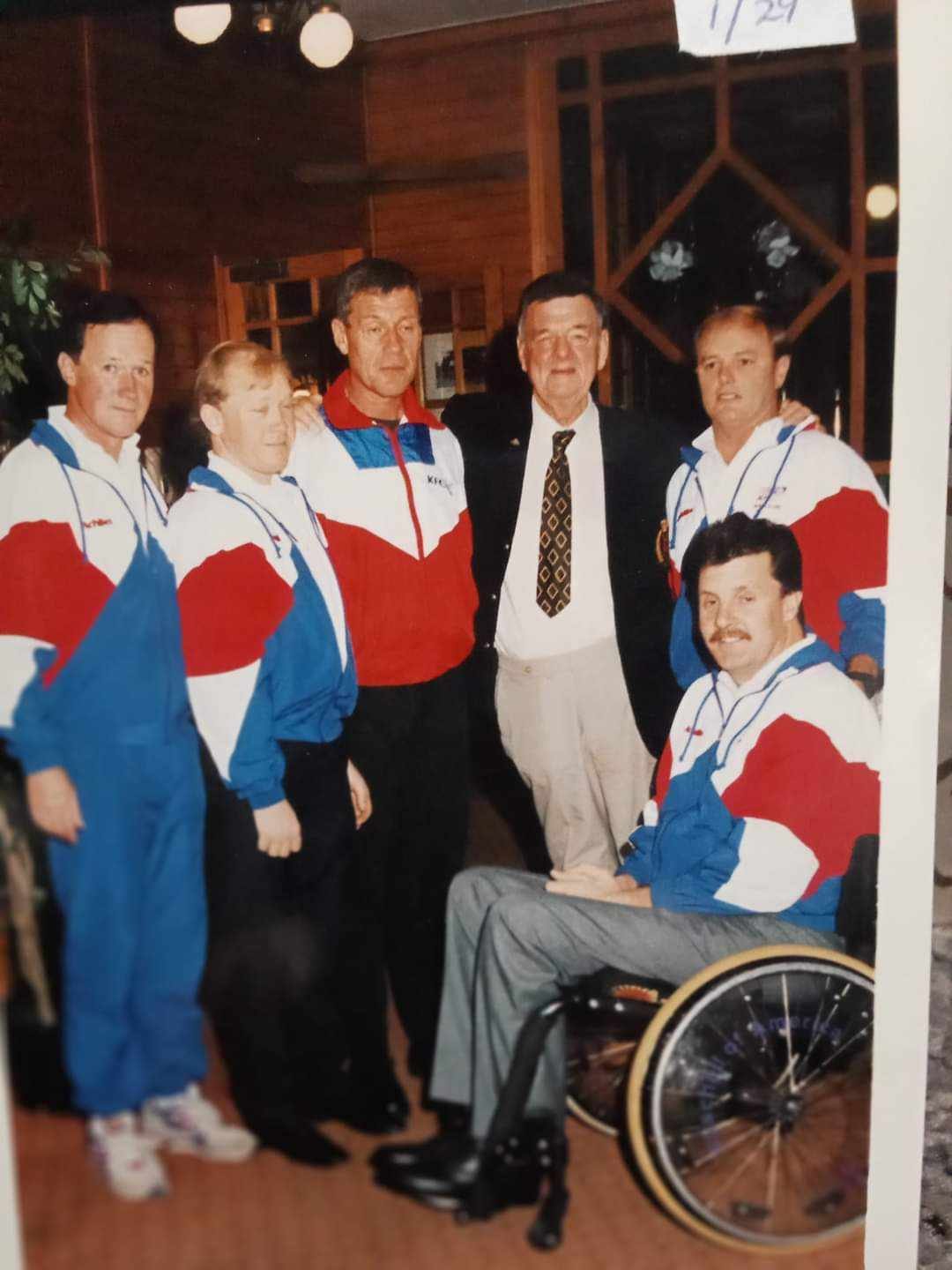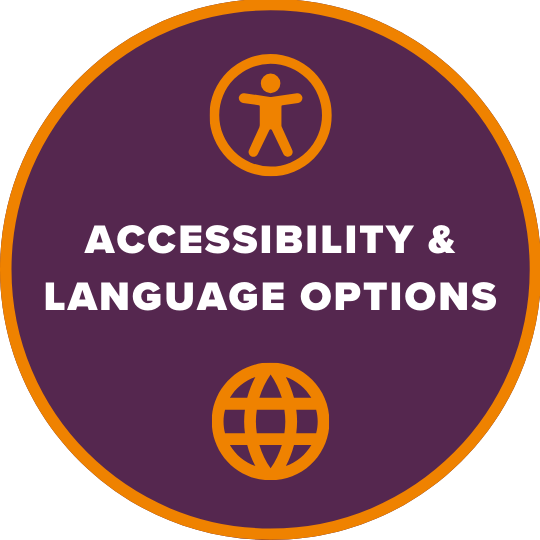Coach’s Corner: Gold Medalist Shares Advice for Transitioning to Adaptive Sports
Paralympic gold medalist, Dave MacCalman of Achilles New Zealand, is a champion athlete across several sports, from shot put and javelin throw to marathoning and basketball. Now he is a champion for others with disabilities as a coach helping them reach their full athletic potential.
As a basketball star in college, Dave’s life changed in 1980 after a diving accident while swimming with friends left him quadriplegic with serious spinal cord injuries. He became a basketball coach, leading men’s and women’s teams to titles in New Zealand. He later also became a distinguished track athlete competing in the World Championships and Paralympics, setting world records and clinching gold, including in the pentathlon.
With the recent publication of his biography, Here’s to Life and All That Jazz, Dave shared advice and top training tips for athletes adjusting to life with a disability in the Q&A below.
How did you get involved with Achilles?
“I first got interested in Achilles when a teammate of mine from the 1992 Paralympics team had told me about his experience running the New York City Marathon. It sounded like a fun opportunity. The next year I met Peter Loft (founder of Achilles New Zealand) who was coaching and managing the 1994 New Zealand team to New York. While in New York, I was introduced to Dick Traum (late founder of Achilles International) who immediately welcomed me into the Achilles family and I just went from there.”
What was it like going from being an athlete to coaching others?
“You realize right away that the sport is no longer subjective, and that it isn’t about you anymore. I had a lot of really great coaches of my own throughout my career, so I had credible mentors to look up to and learn from. I actually took to coaching pretty quickly, and saw right away that I sort of had a knack for it. At first it was a difficult transition, but transitioning to living your life in a wheelchair is also quite difficult. The most difficult part was trying to explore new ways to teach my athletes things like footwork and demonstrating specific basketball skills. That was my biggest challenge; developing communication that would allow me to share my knowledge verbally since I couldn't physically demonstrate.”
What are your top tips for transitioning to adaptive sports and other forms of running?
“After you experience an injury or a life changing event like mine, everything afterwards is all about motivation and your reasoning behind why you want to do something. For me, my number one goal was to always live my life being as independent as possible. I used sports as a vehicle to help increase my strength and mobility. One of the biggest tips I can offer is to take part in as many inclusive community events as possible. You’d be amazed at how much confidence you gain in yourself when you’re around a group of supportive people in similar situations as you. That’s one of the things that I love about Achilles, not only are you able to train for your goals but you are also able to socialize and connect with others in such a special way. I would also remind athletes that there is a direct relationship between how well you train and how well you perform. If you’re really serious about something, especially a sport that may be new to you, finding a good coach is invaluable. Getting into a regular training routine based on principles of training and developing a consistent routine of being active will take you a long way.”
Do you have any other advice for athletes living with disabilities, particularly other wheelchair athletes who might want to try the sport of running for the first time? Or athletes who want to reach the next level and hit a PR?
“I’d like to have a key jewel of wisdom to share, but it's truly up to the individual. Everyone faces different circumstances and sometimes it's very difficult to make that initial jump towards a more positive life. Visualization has helped me, an ability to sense myself in future situations – like winning a gold medal in javelin. Living life in a chair is hard work, and it was especially hard for me during the first year while I was adapting and grieving. I never gave up and I learned that the best things in life come from the biggest efforts. I’ve learned to enjoy the effort. It seems to me that the harder it is, the more you can enjoy it when you look back on it and be proud of your accomplishment. I’m lucky to have a positive mindset, but I think getting involved with a club or organization like Achilles can help you reach that mindset when you’re around the right people. My biggest tip would be to find those people.”
As a coach, you're able to give back to your community in such a special way. What is it like to know that you're actively making a difference in other people's lives?
“Being able to coach others and help them reach their athletic goals really is something so special. It’s something that’s been a huge part of me all the way through. Even after my injury, I got involved in coaching just a few months later and haven’t really stopped. I love the feeling of giving back and helping others improve their live through sport. It’s been a great way to give back to my community, especially the adaptive sports community.”





